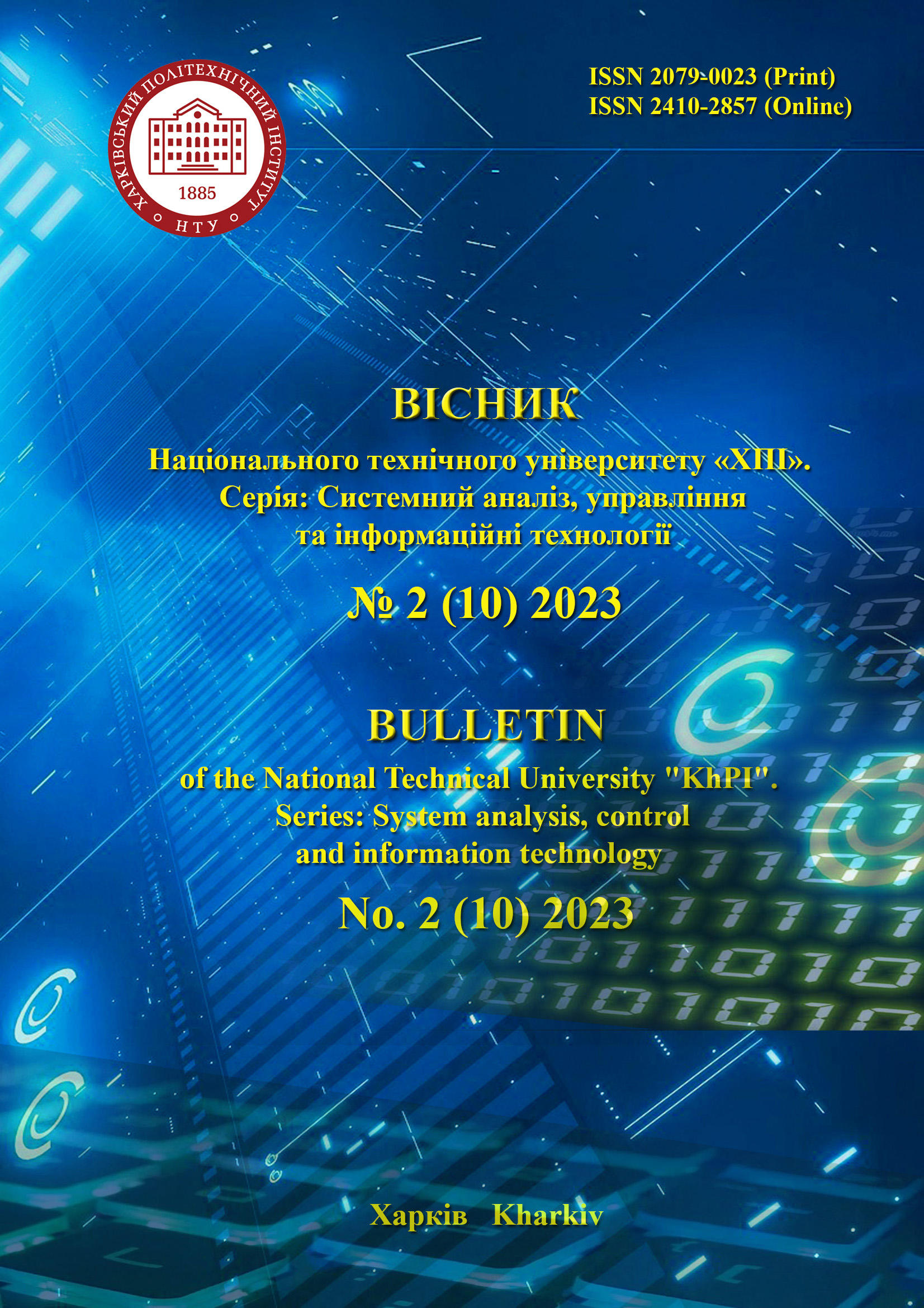MATHEMATICAL MODELS AND METHODS OF COORDINATED PLANNING
DOI:
https://doi.org/10.20998/2079-0023.2023.02.01Keywords:
coordinated management, active system, multi-objective linear programming, theory of PSC-algorithms, combinatorial optimization, compromise criterionAbstract
Modern processes of globalization and economic competition require a significant increase in the requirements for the professional degree of top-level managers who manage the activities of international corporations, regional economies, branch ministries, etc. Their efficient operation is impossible without the use of basic scientific developments and appropriate software which implement the main qualitative law of complex organizational and production systems management: the law of coordinated management (planning), when management decisions at the top level take into account interests that may not coincide, or even be antagonistic in organizational and production subsystems connected by a certain structure of mutual relations within a single organizational and production complex system. In this work, we consider a two-level organizational and production system, which in terms of the generally known theory of active systems is defined as “decision-making center → elements (of an organizational and production subsystem)”. We consider formal models of elements of two classes, linear continuous and discrete, aggregated production models which belong to the same class of NP-hard single-stage scheduling problems. For both types of element models, we give compromise criteria and corresponding methods of constructing compromise solutions based on the results of Prof. A. A. Pavlov for multi-objective linear programming, as a result of his theoretical research for discrete optimization problems under uncertainty, and the theory of PSC-algorithms created by him and his students, that is, algorithms containing polynomial complexity subalgorithms for constructing feasible solutions that satisfy theoretically substantiated sufficient signs of optimality. In this work, we use the PSC-algorithm for the NP-hard scheduling problem “Minimization of the total weighted completion time of jobs on a single machine with precedence relations given by a directed acyclic graph”.
References
Hu Y., Guan Y., Han J., Wen J. Joint optimization of production planning and capacity adjustment for assembly system. Procedia CIRP. 2017, vol. 62, pp. 193–198. DOI: 10.1016/j.procir.2016.06.029
Dhungana D., Haselböck A., Meixner S., Schall D., Schmid J., Trabesinger S., Wallner S. Multi-factory production planning using edge computing and IIoT platforms. Journal of Systems and Software. 2021, vol. 182, no. 111083. DOI: 10.1016/j.jss.2021.111083
Burkov V. N., Tsyganov V. V. Stochastic mechanisms of the active systems functioning. IFAC Proceedings Volumes. 1986, vol. 19, iss. 5, pp. 323–327. DOI: 10.1016/s1474-6670(17)59817-1
Burkov V. N. Active systems theory and organizational mechanisms design. IFAC Proceedings Volumes. 1989, vol. 22, iss. 10, pp. 17–22. DOI: 10.1016/s1474-6670(17)53140-7
Avdeev V. P., Burkov V. N., Enaleev A. K., Kiseliova T. V. Adaptive identification in multichannel active systems. IFAC Proceedings Volumes. 1989, vol. 22, iss. 16, pp. 337–339. DOI: 10.1016/s1474-6670(17)53035-9
Burkov V. N., Enaleev A. K. Stimulation and decision-making in the active system theory: Review of problems and new results. Mathematical Social Sciences. 1994, vol. 27, iss. 3, pp. 271–291. DOI: 10.1016/0165-4896(93)00739-h
Arslanov M. Z. Multiobjective Optimisation and binary relations in active system theory. IFAC Proceedings Volumes. 1999, vol. 32, iss. 2, pp. 6282–6285. DOI: 10.1016/s1474-6670(17)57072-x
Arslanov M. Z. Scalarization of the problem of constructing a set of Slater-optimal solutions. Avtomatika i Telemekhanika. 1997, iss. 8, pp. 138–144.
Sagyngaliev K. S., Pachin S. T., Sanbayev Kh. Kh. Optimization of coordinated control of active systems. Proceedings of the IEEE International Workshop on Intelligent Motion Control. 1990, vol. 2, no. 687436, pp. 867–869. DOI: 10.1109/IMC.1990.687436
Zgurovsky M. Z., Pavlov A. A. Algorithms and software of the four-level model of planning and decision making. Studies in Systems, Decision and Control. 2019, vol. 173, pp. 407–518. DOI: 10.1007/978-3-319-98977-8_9
Pavlov A. A. Models and algorithms of multipurpose linear programming. Journal of Automation and Information Sciences. 2020, vol. 52, iss. 11, pp. 48–59. DOI: 10.1615/JAutomatInfScien.v52.i11.40
Pavlov A. A. Optimization for one class of combinatorial problems under uncertainty. Adaptyvni systemy avtomatychnoho upravlinnya: mizhvidomchyy nauk.-tekhn. zbirnyk, 2019. Том 1, № 34, С. 81–89. DOI: 10.20535/1560-8956.1.2019.178233
Downloads
Published
How to Cite
Issue
Section
License

This work is licensed under a Creative Commons Attribution 4.0 International License.
Authors who publish with this journal agree to the following terms:
- Authors retain copyright and grant the journal right of first publication with the work simultaneously licensed under a Creative Commons Attribution License that allows others to share the work with an acknowledgement of the work's authorship and initial publication in this journal.
- Authors are able to enter into separate, additional contractual arrangements for the non-exclusive distribution of the journal's published version of the work (e.g., post it to an institutional repository or publish it in a book), with an acknowledgement of its initial publication in this journal.
- Authors are permitted and encouraged to post their work online (e.g., in institutional repositories or on their website) prior to and during the submission process, as it can lead to productive exchanges, as well as earlier and greater citation of published work (See The Effect of Open Access).

